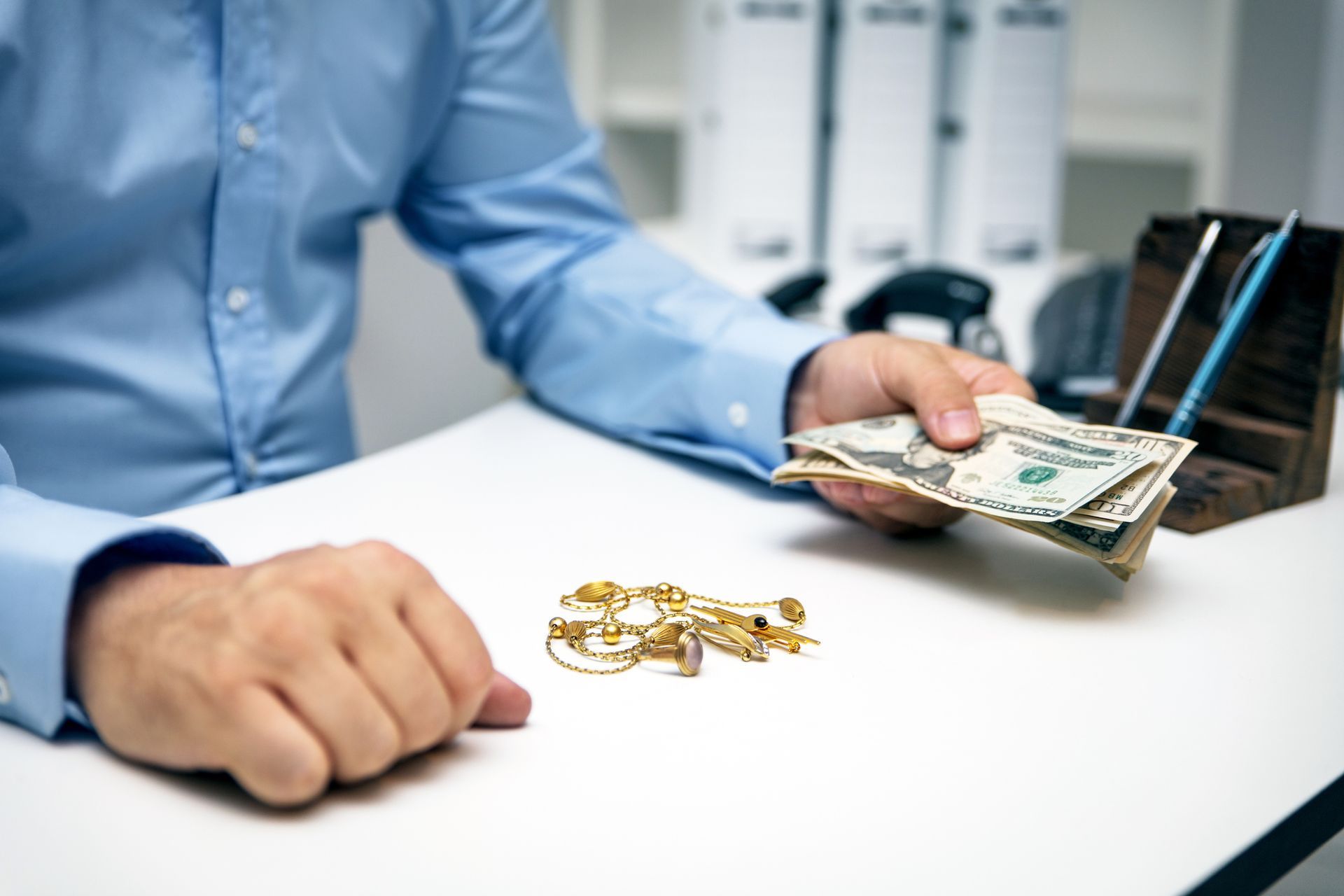Selling vs. Pawning: Which Is the Best Option?
If you need money, you could apply for a loan from your local bank. Unfortunately, bank loans take almost all eternity to process, especially if you don't have a stellar credit score. Alternatively, you can visit a pawn shop and sell or pawn your valuables for quick cash.
However, most people often struggle with deciding whether to sell or pawn their items. Each of these options comes with unique pros and cons that sets them apart. As such, it's important to understand and weigh both options, to decide which suits your needs.
With that in mind, let's start by looking at the differences between the two options.
Selling Items
Selling an item to a pawnshop entails negotiating with the pawnbroker on the amount they're willing to buy your item. Once you agree on the price, you hand over the item, and you walk away with cash in hand. Selling works best for items you no longer need or are happy to part with. The main benefits of selling items to a pawnshop include:
Quick and straightforward
What makes selling an appealing choice is that it's fast and straightforward. You get your money as soon as you agree on the price. There is no time-consuming paperwork involved.
No obligations
There are no loans involved when selling an item. You simply hand it over to the broker, and you get the money instantly. So you aren't tied to an obligation of paying the money back, neither will you worry about interest fees.
Selling is also a nice way to get rid of items you no longer have use for and get money in return. If you bought a new electrical appliance, you could sell the old one to a pawn shop to clear the clutter in your home.
The only downside to selling items is that you relinquish ownership. If you're not looking to permanently part with your goods, this option isn't for you.
Pawning Items
Essentially, pawning is getting a loan using your items as collateral. A pawnbroker will agree to hold your item for a certain amount of cash which you're supposed to pay back plus interest, at an agreed time. If you fail to repay the amount and the interest, the pawnbroker has the right to keep your item for longer or sell it to recoup the loan amount.
For instance, you can pawn your piece of jewelry for, say, $800. In this case, you are obligated to repay the loan amount plus interest after a pre-set period. If you cannot repay the money when the term expires, the broker will own your jewelry. The interest rates usually vary, so it's good to shop around for pawnshops offering affordable interests.
Pawning is better than selling because:
- You'll get your item back once you've cleared the loan amount. This means that you can pawn a sentimental item/jewelry with the guarantee that you can retrieve it provided you meet the requirements.
- Unlike taking out traditional loans, your credit score isn't required when pawning an item. Pawnshops look only at the value of the item and not your credit history.
- Another benefit of pawning is that it offers an efficient alternative to applying for a bank loan. Most importantly, you're guaranteed to get a loan which isn't the case with a bank.
The biggest downside to pawning is that you can only borrow a percentage of an item's worth. Additionally, pawning comes with obligations. You have to pay back the total loan amount plus interest before the given period expires. Although you can renew the loan to allow you more time, you'll incur additional fees, which increases the overall amount to be paid.
The choice between pawning and selling depends on your needs. If you need a large sum of cash, selling is the better option, but keep in mind that you cannot reclaim your item. Pawning is ideal if you want to keep your item.
Turn to 2 J's Pawn & Gun for reliable and trustworthy pawn services.









